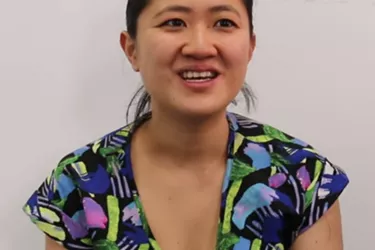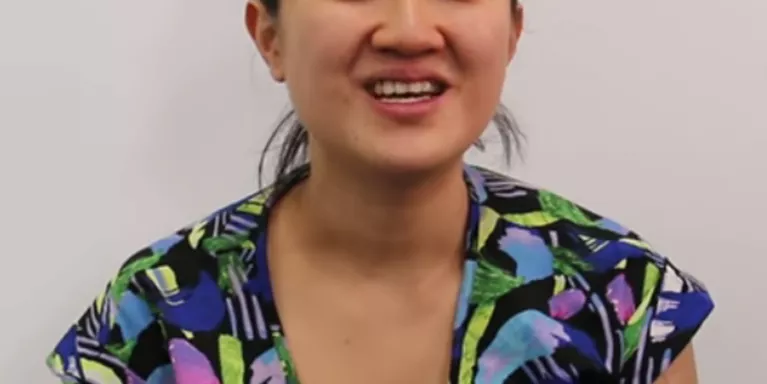Sectioned sick and bored
Katy lives in Manchester, campaigns for better services for mental health treatment and hopes to become a professional writer. Today she blogs about how boredom is a real problem when you're staying in hospital.
Sometimes, boredom is a real problem. I was 'the wellest person on the ward’ and intended to act my way out of hospital - but the endless Midsomer Murders repeats mounted up...
I have an A-level in Drama, I thought. I’m going to act my way out of this place.
At first the other patients thought I was a student nurse. In my ward round, I was described by the psychiatrist as ‘the wellest person on the ward’. I described his grammar as poor. They said I’d be home in a week.
The ward was bare, a small TV on the wall surrounded by three sofas, TV permanently tuned to Midsomer Murders. Ants crawled in the kitchen. Raw sewage blocked one of the toilets for a week, leaving a shower room out of action. Patients collected cigarette dimps off the floor to smoke later, begged for change in the car park. Occupational Therapists came once a week for a couple of hours and did colouring-in with us.
"As a treat some nights, some of us would pool together our change and order takeaway... A banquet on the ward."
But every week in ward round, they said I ‘needed a little longer’. Every week. May turned into June and then into July. It was hot and the windows in the dorms didn’t open. There was no air conditioning.
The same fourteen meals each week. As a treat some nights, some of us would pool together our change and order takeaway. A treat in the real world. A banquet on the ward.
It was always a highlight of the week if I had a visitor. When my Mum visited, she came armed with two carrier bags of junk food and books. My friends brought me cupcakes and photos of their children. I needed that contact with people who didn’t treat me as a patient, to make jokes, sharpen my brain with brain teasers, and get me away from just watching TV all day.
I learned what ‘pulling the pin’ meant. You ran off the ward and a staff member would pull the alarm on their belt and it would sound on all the wards and all staff trained in control and restraint would run off their wards to catch you. That was always pretty frightening.
...I tried to escape twelve times. It seemed to me, in that environment, the most inborn, natural thing I could do. I just wanted to be free.
Months of monotony passed. I was out of work, offline (the hospital had no working computers for patients), and lonely. The hospital wasn’t in a good neighbourhood and you only had to walk five minutes from the hospital doors to find cannabis, speed, cocaine, heroin.
Finally, after months of being in hospital, I was discharged. Clearly my acting skills weren't as good as I'd thought.
It was strange being back in my flat. I learned that my Section 3 meant I couldn’t attend my best friend’s wedding in the USA, something I think I will always be bitter about. And after that long stint, I clocked up another ten Sections. The after-years were not pretty. Lots of medication changes, diagnosis changes, care team changes.
But I have friends who have not left my side. I still have a job. I have a supportive family. And I have a wonderful boyfriend who knows the whole story and loves me regardless. I have a dream to be a professional writer and am working on a novel.
The wards are valuable for what they stand for, in that they can provide a safe refuge for people too ill to care for themselves. A lot does need to change though. More beds, more resources would mean more faith in crisis care - so that you’re not just sitting around, letting your mind do its own thing when it could be directed into helping itself.
"The surprise birthday party... The evening we all watched Azerbaijan win Eurovision. The sunrise Tai Chi..."
There’s so much that could be done to improve things - and I think it’s only equivalent to what would be expected of physical inpatient care.
And it is possible. There were times on the ward when the atmosphere was different. The surprise birthday party we threw for one of the quietest girls on the ward, complete with balloons, cake, and a game of Musical Chairs. The evening we all watched Azerbaijan win Eurovision. The sunrise Tai Chi we did with a patient who could only speak in very broken English. There were support staff who hugged me at the end of a shift.
It would be nice if someone could read this and think, yep, let’s start changing the wards. We need them, and we can also make them better.


Information and support
When you’re living with a mental health problem, or supporting someone who is, having access to the right information - about a condition, treatment options, or practical issues - is vital. Visit our information pages to find out more.
Share your story with others
Blogs and stories can show that people with mental health problems are cared about, understood and listened to. We can use it to challenge the status quo and change attitudes.

















